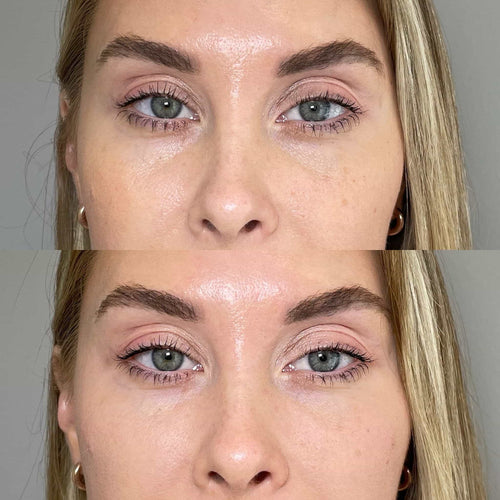Get a Dermal Filler Consultation with Dr. Laura Geige at It’s Me and You Clinic
## Common Causes
There are several reasons why your lips might feel dry after getting lip filler.
Schedule a Dermal Filler Consultation with Dr. Laura Geige Now
One common cause is dehydration. When you get lip fillers, the injection process can temporarily disrupt the natural moisture balance of your lips. This can lead to dryness, especially if you’re not drinking enough water before and after the procedure.

Another factor is the type of filler used. Some fillers contain ingredients that can draw moisture from your lips, making them feel drier. Hyaluronic acid fillers are generally considered less drying than other types of fillers, but it’s still possible to experience some dryness.
The injection process itself can also irritate the skin and disrupt the natural barrier function of your lips. This can make them more susceptible to dryness and cracking.
Sun exposure is another culprit. Just like any other part of your body, your lips can become dry and chapped when exposed to the sun’s harmful rays. Make sure to apply a lip balm with SPF after getting lip fillers.
Finally, certain medications, such as diuretics or retinoids, can also contribute to dryness. If you’re taking any medication that might be affecting your lip moisture, talk to your doctor.
Hydration Status
Underlying Medical Conditions
Temporary Reaction to Filler
Minimizing Dryness
Lip fillers, while popular for adding volume and definition, can sometimes lead to temporary dryness as a common side effect.
Here’s a breakdown of why this happens and how to minimize dryness after lip filler treatment:
What Causes Dryness?
Lip fillers typically contain hyaluronic acid (HA), a naturally occurring substance in our bodies that attracts and holds water. During the injection process, HA is deposited into the lips, plumping them up. However, this can sometimes disrupt the natural moisture barrier of the lips.
Additionally, the needle punctures used during the procedure can irritate the delicate skin, causing inflammation and dryness.
Minimizing Dryness:
• **Pre-Treatment:** Before your appointment, ensure your lips are well hydrated by drinking plenty of water and using a lip balm with moisturizing ingredients like shea butter or beeswax.
• **Aftercare Instructions:** Strictly follow your practitioner’s aftercare instructions. This usually includes avoiding harsh exfoliation, picking at the area, and applying makeup for a certain period.
• **Hydrating Products:**
Incorporate rich lip balms or creams that contain humectants (like hyaluronic acid) and occlusives (like petroleum jelly) to lock in moisture. Look for products specifically designed for sensitive skin.
• **Lip Masks:** Overnight lip masks can provide intense hydration. Apply a generous layer before bed and wake up to softer, smoother lips.
• **Stay Hydrated:** Continue drinking plenty of water throughout the day to keep your body and lips hydrated from within.
• **Avoid Irritants:** Avoid licking your lips, as this can further dry them out. Stay away from spicy or acidic foods that can irritate the area.
• **Consult Your Practitioner:** If dryness persists or becomes bothersome, contact your practitioner. They may recommend additional remedies or adjust your treatment plan.
Remember: Lip filler dryness is usually temporary and resolves within a few days to a week with proper care. By following these tips and staying patient, you can minimize discomfort and enjoy your fuller, smoother lips.
Staying Hydrated
Lip Balm Choices
Schedule a Dermal Filler Appointment with Dr. Laura Geige Now
Avoid Irritants
## When to Seek Professional Help
When dealing with dry lips after lip filler, avoiding irritants is crucial to promoting healing and minimizing discomfort.
Common culprits include harsh chemicals found in some cosmetics, like fragrances, menthol, and salicylic acid. These can further dehydrate your lips and cause irritation.
Additionally, certain activities like licking or biting your lips can disrupt the healing process and exacerbate dryness. Be mindful of this during recovery.
Another important consideration is sun exposure. Ultraviolet (UV) rays can damage delicate skin, including freshly treated lips. Apply a broad-spectrum sunscreen with an SPF of 30 or higher regularly to protect your lips from the sun’s harmful effects.
Sometimes, despite best efforts, persistent dryness or other concerns may arise. If you experience any of the following, seeking professional help is essential:
1. Intense pain or discomfort that doesn’t subside with over-the-counter remedies
2. Swelling that extends beyond the immediate lip area or does not decrease over time
3. Fever, chills, or other signs of infection
4. Discoloration or unusual changes in skin texture on your lips
5. Persistent dryness that doesn’t improve with hydration and lip care products
Signs of Infection
Persistent Discomfort
Josie Barrett Super Sleep Yoga Elizabeth Joy Photo MS Style and Grace
- Traptox Aka Trapezius Botox Treatment Near Guildford, Surrey - January 4, 2025
- Why Are My Lips So Dry After Lip Filler - December 21, 2024
- How Long After Antibiotics Can I Get Lip Filler - December 14, 2024
